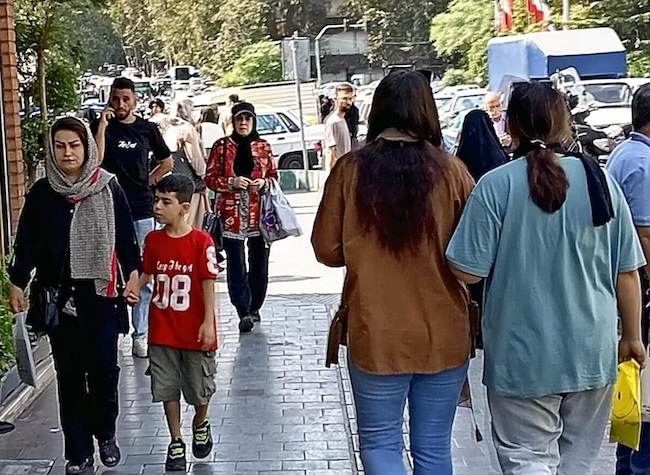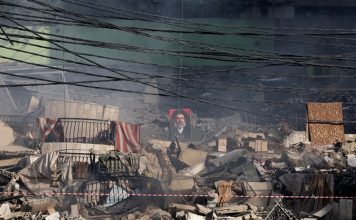Legislation in the Islamic Republic of Iran to enforce the mandatory hijab had been toughened to include increased jail terms and financial penalties for women who violate the country’s dress code.
The ‘Protection of the Family through Promoting the Culture of Hijab and Chastity’ law was given final approval in September by the Guardian Council, according to a Sept. 25 report by the semi-official Mehr news agency.
The law, which will come into force shortly, toughens existing legislation for the mandatory hijab and includes employment and education restrictions for offenders. The legislation also calls for up to 10 years in prison or a fine of up to $2,380 for appearing in public places in a state which would be considered “nudity, semi-nudity, or a ‘socially considered’ equivalent to nudity,” according to an Oct. 14 Human Rights Watch (HRW) press release.
“Rather than responding to the ‘Woman, Life, Freedom’ movement with fundamental reforms, the autocratic government is trying to silence women with even more repressive dress laws,” Nahid Naghshbandi, the acting Iran researcher for HRW, said in the statement. “This law will only breed fierce resistance and defiance among women in and outside Iran.”
Additional measures include fines ranging from 15 million rials ($24) to 500 million rials ($790) for girls and women caught improperly wearing the hijab in public spaces, and fines for those who violate the law more than four times of up to one billion 500 million rials ($2,380), a travel ban of up to two years, being banned from online activities for up to two years, and up to five years in prison.
The provisions extend to digital platforms, particularly where posters make fun of the hijab and promote nudity online. Influencers face some of the harshest penalties for violating the Hijab and Chastity law, including fines of up to five percent of their total assets, bans from leaving Iran and engaging in professional activities.
The law will be enforced using traffic cameras, online checking systems and surveillance cameras in open spaces.
Iran’s new President Masoud Pezeshkian vowed to stop the use of violent and draconian measures against women falling fowl of the country’s dress code, during his election campaign in July.
While the country’s dress code imposes restrictions on men and women, women and girls have been disproportionately targeted for decades by the law. Pezeshkian said Iran’s so-called morality police would not “bother” women and girls once he became president.
While Iranians in Iran have used social media to criticize Pezeshkian’s inaction, lawmakers have also raised concerns. Prominent Reformist politician Azar Mansouri warned on Aug. 7 that hijab enforcement in the country was misplaced and “increased the divide between the establishment and the people.” On the same day, Mohammad Fazeli, an advisor on Pezeshkian’s campaign, took to social media platform X (formerly Twitter) to express anger at the treatment of women and girls in Iran being assaulted by officers arresting them for hijab violations. Fazeli called the conduct the “destroyer of social stability and social capital.”
On Mahsa Anniversary, More Than 30 Countries Urge Gender Equality in Iran
Several women and girls have died after reportedly being beaten by security officials for violating the country’s dress code. Mahsa Amini, a 22-year-old woman who was detained by officials for breaching the mandatory hijab law died in September 2022 of injuries sustained while in police custody. Her death ignited the ‘Woman, Life, Freedom’ movement, which called for gender equality in Iran, and resulted in nationwide anti-government protests which swept the country.
Iran’s police shot and paralyzed a mother of two on July 22, after she was accused of violating the dress code. Arezoo Badri was left with life-altering injuries after being paralyzed from the waist down. Badri fled in her car following an order by police to stop her vehicle, prompting the officers to open fire.
Armita Geravand, a teenager who was removed by officials from a train in Tehran’s metro and was injured under mysterious circumstances during the incident, died in October 2023. The 17-year-old fell into a coma after being arrested for allegedly violating the mandatory hijab law, and died on Oct, 28, 2023 in intensive care.
“The international community should demand that Iran stop its implementation of the new Hijab and Chastity law and instead ensure that women and girls no longer face discrimination and abuses for their choice of dress,” Naghshbandi said in HRW’s statement.














